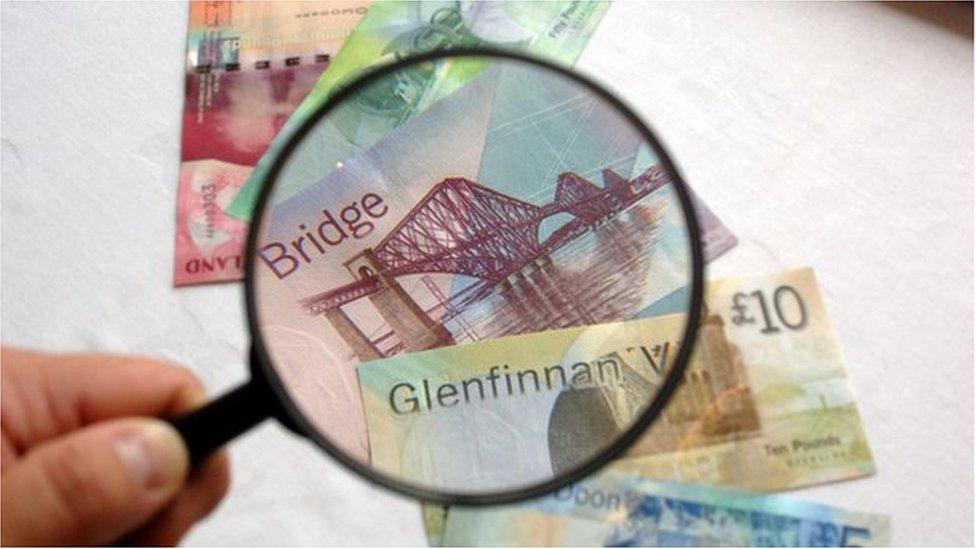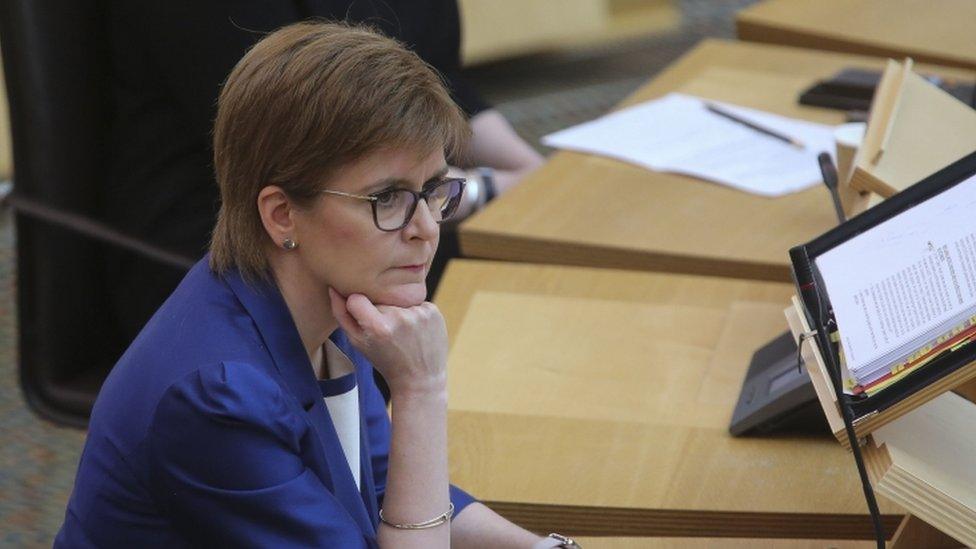Citizen's basic income: Pilot scheme 'challenging but desirable'
- Published

A study group looking into whether Scotland should implement a basic income for every citizen has backed proposals to run a pilot scheme.
Models vary, but the idea is based on an unconditional, regular payment made instead of benefits.
Proponents claim it could cut welfare bureaucracy and reduce poverty.
Councils in Fife, North Ayrshire, Edinburgh and Glasgow are part of the group which has now endorsed plans to run a pilot.
The councils will now debate the findings before passing the report to the Scottish government at the end of the month.
The group behind the study, the Citizens' Basic Income Feasibility Study Steering Group, said a pilot - which would run for three years - could provide a better understanding of how a universal basic income could impact on poverty, child poverty, unemployment, health and financial wellbeing.
However, it also said there were many obstacles that would have to be overcome, as it would require the UK and Scottish governments as well as councils working together.
A basic income system would provide every individual in the country with a cash payment at regular intervals, without any requirement to work or qualify for it. This payment would be given to every citizen regardless of their wealth, employment or personal status.
Two levels of payment
A range of different figures have been suggested, but it would be enough to cover the basics of life and would serve as a replacement for all existing benefit payments.
The study suggests trialling two levels of payment - one that is broadly in line with current benefit entitlements, and another at a higher level which experts think is likely to be able to reduce or eradicate poverty.
Joe Cullinane, leader of North Ayrshire Council, said: "As we rebuild our economy post-Covid, we must consider innovative solutions in recreating the social security safety net and now would seem the ideal time to test Citizens' Basic Income."
Paul Vaugan, head of communities at Fife Council said that while "desirable", a pilot scheme would have to overcome many challenges.
"We are clear that a pilot of basic income is desirable and we have described how and what would need to be done for this to happen," he said.
"However, we also recognise that, at this time, it's not currently feasible to progress to a pilot due to the very complex legislative, technical and delivery challenges associated with the institutional arrangements needed for a pilot."

Nicola Sturgeon backs a basic income - but says Holyrood lacks the powers to set one up
First Minister Nicola Sturgeon has said the experience of the coronavirus pandemic has strengthened her support for such a system, telling MSPs in May: "My position on that has gone from having a keen interest in exploring it to what I now describe as active support for it."
However, she stressed the constitutional barriers to actually setting one up, saying "we cannot implement it unilaterally in Scotland".
Responding to the publication of the report, Communities Secretary Aileen Campbell said she had written to UK minister "urging them to engage constructively with us on this matter and discuss next steps towards a universal basic income pilot."
Ms Campbell added: "The coronavirus pandemic has exposed the shortcomings of the UK social security system and strengthened calls to further explore how a universal basic income could provide support to people and reduce poverty.
"We now have the perfect opportunity to take that forward."
The UK government retains many welfare and taxation powers, and has said that a basic income is not the best response to the pandemic because it is not targeted at those who need support the most.
Chancellor Rishi Sunak told MPs that the government was "not in favour of a universal basic income", and had "strengthened the safety net for the most vulnerable" by investing in the existing welfare system.
- Published9 June 2020

- Published9 May 2019

- Published27 December 2017
